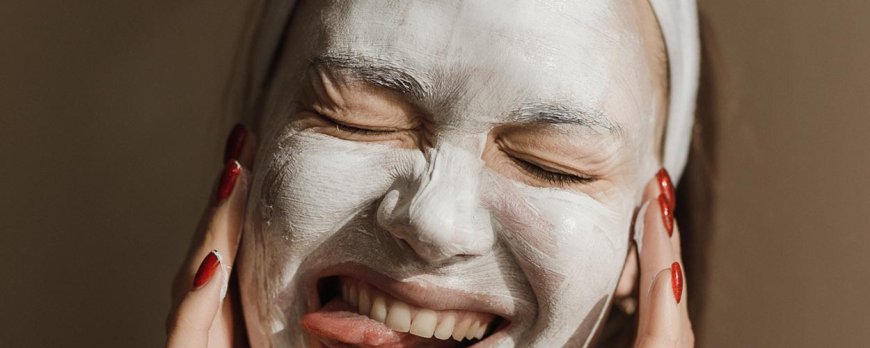What does your skin really need?
Discover 'What does your skin really need?' Uncover the truth about skin health, proper care, and essential nutrients for glowing, radiant skin.

What does your skin really need?
Discover the key elements that make up an effective skincare routine and learn what your skin really needs to stay healthy and glowing.
Key Takeaways:
- Your skin needs a few essential products: cleanser, moisturizer, and sunscreen.
- Use a gentle non-soap cleanser to remove dirt without damaging the skin barrier.
- Moisturizer helps maintain moisture and prevent water loss from the skin.
- Sunscreen is crucial for protecting the skin from harmful UV rays and reducing the risk of skin cancer.
- Consult a dermatologist to determine the right products and routines for your specific skin needs.

Understanding the Importance of Cleanser, Moisturizer, and Sunscreen
Cleanser, moisturizer, and sunscreen are the foundation of a proper skincare regimen, providing essential nourishment and protection for your skin. A gentle non-soap cleanser is recommended to remove dirt and impurities without damaging the skin's natural barrier. This helps to maintain a clean and healthy canvas for the rest of your skincare routine.
Moisturizer plays a vital role in maintaining skin hydration. It helps to lock in moisture, preventing water loss and keeping the skin supple, nourished, and healthy. By replenishing the skin's moisture levels, moisturizer ensures that your skin remains hydrated throughout the day, reducing the risk of dryness and flakiness.
Sunscreen is an absolute must-have in any skincare routine. It protects your skin from the harmful effects of UV rays, which can lead to premature aging, dark spots, and even skin cancer. Applying sunscreen daily, even on cloudy days, is crucial in maintaining healthy skin and preventing sun damage.
For individuals with specific skin concerns, additional skincare products can be incorporated into their routine. These may include hyaluronic acid, which provides plumpness and hydration, retinol or retinoids for anti-aging benefits, and vitamin C serum to brighten the skin and fade dark spots. However, it is always advisable to consult a dermatologist to determine the right products and routines for your individual skin needs.

Finding the Right Cleanser for Your Skin Type
Choosing the right cleanser is crucial for maintaining a healthy skin barrier and ensuring your skin gets the care it needs. Cleansers are the first step in any skincare routine, as they help remove dirt, oil, and impurities from the skin's surface. However, not all cleansers are created equal, and finding the one that suits your skin type is essential.
For those with oily or acne-prone skin, a gel or foaming cleanser can be highly effective. These formulas help to remove excess oil and unclog pores, preventing breakouts. On the other hand, individuals with dry or sensitive skin should opt for a creamy or lotion cleanser. These cleansers are gentle and hydrating, helping to soothe and nourish the skin without stripping away natural oils.
Finding the perfect cleanser for combination skin
If you have combination skin, where some areas are oily while others are dry, a gentle and pH-balanced cleanser is your best bet. Look for cleansers that are specifically formulated for combination skin, as they can effectively cleanse without over-drying or causing excess oiliness.
When choosing a cleanser, it's also important to consider the ingredients. Look for cleansers that are free from harsh chemicals, fragrances, and alcohol, as these can be drying and irritating to the skin. Instead, opt for cleansers with ingredients like hyaluronic acid, ceramides, or glycerin, which help to hydrate and protect the skin barrier.
- Choose a cleanser that suits your skin type (gel or foaming for oily skin, creamy or lotion for dry/sensitive skin)
- For combination skin, opt for a gentle and pH-balanced cleanser
- Avoid cleansers with harsh chemicals, fragrances, and alcohol
- Look for ingredients like hyaluronic acid, ceramides, or glycerin for added hydration and protection
Remember, finding the right cleanser is the first step towards achieving healthy and radiant skin. Take the time to understand your skin type and its specific needs, and consult with a dermatologist if necessary. With the right cleanser and a consistent skincare routine, you can give your skin the care it deserves.
The role of moisturizer in skin hydration
Hydrated skin is essential for a healthy complexion, and a good moisturizer plays a vital role in maintaining optimal skin hydration. Moisturizers are formulated to provide the skin with the necessary moisture it needs to stay supple and nourished. They help to prevent water loss from the skin, keeping it plump and smooth.
When choosing a moisturizer, look for one that is suitable for your skin type and concerns. For dry skin, opt for a rich and creamy moisturizer that provides intense hydration. If you have oily or combination skin, choose a lightweight, non-comedogenic formula that won't clog pores.
Hyaluronic acid is a popular ingredient found in many moisturizers, known for its ability to attract and retain moisture in the skin. It helps to plump up the skin and reduce the appearance of fine lines and wrinkles. Additionally, moisturizers may contain other beneficial ingredients like ceramides, antioxidants, and peptides, which can help to repair and protect the skin barrier.
To maximize the benefits of your moisturizer, apply it on damp skin after cleansing. This helps to seal in moisture and create a protective barrier. Don't forget to extend your moisturizer down to your neck and décolletage, as these areas also require hydration. Incorporating a moisturizer into your skincare routine is a simple yet essential step to maintain healthy, hydrated skin.
The importance of sunscreen for skin protection
Shielding your skin from the sun's damaging rays is crucial for achieving and maintaining beautiful, healthy skin. Sunscreen plays a vital role in protecting your skin against harmful UV rays and reducing the risk of skin cancer. Here are some essential skincare tips to help you choose and apply sunscreen effectively:
- Choose a broad-spectrum sunscreen: Look for a sunscreen that offers protection against both UVA and UVB rays. This ensures that your skin is shielded from the entire spectrum of damaging sun rays.
- Opt for a high SPF: Select a sunscreen with a sun protection factor (SPF) of 30 or higher. This provides better defense against the sun's harmful effects and helps prevent sunburn and premature aging.
- Apply generously and frequently: Be sure to apply sunscreen generously to all exposed areas of your skin and reapply every two hours, or more frequently if you're sweating or swimming. This will ensure continuous protection throughout the day.
- Don't forget the often neglected areas: Apply sunscreen to commonly overlooked areas such as your ears, neck, and the back of your hands. These areas are vulnerable to sun damage and need protection too.
Remember, sunscreen is not only essential during sunny summer days but also during cloudy or winter months. UV rays can still penetrate the clouds and cause damage to your skin. By incorporating sunscreen into your daily skincare routine, you can achieve long-term skin health and maintain a beautiful complexion.

Additional skincare products for specific skin needs
In addition to the essential products, there are other skincare products that can enhance your routine and target specific skin concerns. These products can provide additional benefits and help address specific issues such as aging, dryness, or hyperpigmentation.
1. Hyaluronic acid
Hyaluronic acid is a powerful ingredient known for its ability to retain moisture in the skin. It helps to plump up the skin and reduce the appearance of fine lines and wrinkles. By adding a hyaluronic acid serum or moisturizer to your routine, you can boost hydration levels and achieve a more youthful, radiant complexion.
2. Retinol or retinoids
Retinol and retinoids are derived from vitamin A and are highly effective in promoting skin renewal and reducing the signs of aging. These products can help improve skin texture, minimize the appearance of wrinkles, and fade dark spots. However, it's important to start with a low concentration and gradually increase usage to avoid irritation.
3. Vitamin C serum
Vitamin C is a potent antioxidant that can brighten the skin, fade dark spots, and even out skin tone. Incorporating a vitamin C serum into your routine can help enhance skin radiance and give you a more youthful, glowing complexion. Look for serums with stabilized vitamin C for optimal effectiveness.
Remember, it's important to consult a dermatologist before introducing new products into your skincare routine. They can assess your specific skin needs and recommend the most suitable products for you. By using the right combination of essential skincare products and targeted treatments, you can achieve healthier, more vibrant skin.

Consulting a dermatologist for personalized skincare recommendations
To create a personalized skincare routine that addresses your unique skin needs, it's crucial to consult a dermatologist who can provide expert recommendations. Skincare is not a one-size-fits-all approach, as every individual has different skin types, concerns, and sensitivities. By seeking professional guidance, you can ensure that you are using the right products and following the most effective routines for your specific needs.
A dermatologist will thoroughly examine your skin, taking into account factors such as your skin type, any existing conditions or concerns, and your lifestyle. Based on this assessment, they can provide tailored recommendations for skincare products and routines that will best suit your needs. They may also suggest additional treatments or therapies to address specific concerns, such as acne, rosacea, or hyperpigmentation.
Benefits of consulting a dermatologist:
- Expert knowledge: Dermatologists are highly trained medical professionals who specialize in skin health. Their expertise allows them to accurately diagnose and treat a range of skin conditions.
- Personalized recommendations: By understanding your individual skin needs, a dermatologist can recommend products and routines that are specifically tailored to you, maximizing the effectiveness of your skincare regimen.
- Addressing specific concerns: Dermatologists can provide targeted treatments and therapies for specific skin concerns, such as aging, acne, or sensitive skin.
- Safety and effectiveness: They can guide you in selecting products that are safe and effective for your skin type, ensuring that you achieve optimal results without any adverse reactions.
Remember, beautiful and healthy skin starts with understanding and addressing its unique needs. By consulting a dermatologist, you can gain valuable insights and expert guidance to create a skincare routine that will help you achieve and maintain beautiful skin in the long run.
Building a tailored skincare routine for skin barrier impairments
For individuals with skin barrier impairments, customizing a skincare routine that nourishes and supports the damaged skin barrier is essential. When the skin barrier is compromised, it becomes more susceptible to dryness, sensitivity, and inflammation. To address these concerns, incorporating specific skincare products and treatments can help restore and strengthen the skin barrier.
Key considerations for a skincare routine:
- Gentle cleanser: Choose a mild, non-soap cleanser that effectively removes dirt and impurities without stripping the skin of its natural oils. Look for ingredients like ceramides and hyaluronic acid, which help to replenish and hydrate the skin.
- Barrier-supporting moisturizer: Opt for a moisturizer formulated with ingredients like niacinamide, shea butter, or squalane, which help to repair the skin barrier and lock in moisture. Apply the moisturizer regularly, especially after cleansing and bathing, to maintain hydration.
- Occlusive products: Consider using occlusive products that create a protective layer on the skin to prevent moisture loss. Ingredients such as petrolatum, dimethicone, or lanolin can help to seal in hydration and promote healing.
- Extra care for sensitive areas: Pay special attention to areas of the skin that are more prone to sensitivity, such as the delicate skin around the eyes or lips. Use gentle, fragrance-free products specifically designed for these areas to minimize irritation.
It's important to note that skincare routines for individuals with skin barrier impairments may vary depending on the severity and specific needs of the condition. Consulting a dermatologist is highly recommended to receive personalized recommendations and guidance tailored to your skin's unique requirements. A dermatologist can help determine the most effective products, treatments, and lifestyle adjustments to nourish and support your skin barrier, leading to healthier, more resilient skin.
The importance of consistency in skincare routines
Consistency is key when it comes to achieving and maintaining healthy, glowing skin. A well-rounded skincare routine is only effective when followed diligently over time. By establishing a consistent routine, you allow your skin to reap the full benefits of the products and treatments you use.
Whether you're cleansing, moisturizing, or applying sunscreen, regularity plays a vital role in seeing desired results. By cleansing your skin twice a day, morning and night, you effectively remove dirt, pollutants, and impurities that accumulate throughout the day. Regular moisturization ensures that your skin is adequately hydrated, preventing dryness and enhancing its natural radiance. Don't forget the sunscreen - incorporating this into your daily routine shields your skin from harmful UV rays and reduces the risk of sun damage.
To make the most of your skincare routine, it's essential to consult a dermatologist to determine the right products and routines for your specific skin needs. They can provide personalized guidance and recommend additional therapies if necessary. For those with specific concerns such as dryness, sensitivity, or inflammation, targeted skincare products and treatments can help address these issues effectively.
In addition to a consistent skincare routine, adopting healthy lifestyle habits complements your efforts in achieving and maintaining healthy skin. Proper hydration, a balanced diet rich in nutrients, sufficient sleep, stress management, and avoiding harmful habits like smoking all contribute to overall skin health.
Healthy lifestyle habits for overall skin health
Taking care of your skin goes beyond skincare products and routines - adopting healthy lifestyle habits is vital for achieving and maintaining glowing, healthy skin. By incorporating these habits into your daily life, you can nourish your skin from the inside out and enhance its natural beauty.
1. Hydration:
Stay hydrated by drinking an adequate amount of water throughout the day. Proper hydration helps to flush out toxins, maintain optimal skin moisture levels, and promote a youthful complexion.
2. Balanced diet:
Eat a balanced diet rich in fruits, vegetables, whole grains, and lean proteins. These nutrient-packed foods provide essential vitamins, minerals, and antioxidants that support skin health and combat free radical damage.
3. Adequate sleep:
Get enough sleep each night to allow your skin time to repair and rejuvenate. During sleep, your body produces collagen, a protein that promotes skin elasticity and fights against the signs of aging.
4. Stress management:
Find healthy ways to manage stress, as prolonged stress can contribute to various skin issues such as acne and inflammation. Practice relaxation techniques, engage in regular exercise, or pursue hobbies that bring you joy and help you unwind.
5. Avoid harmful habits:
Avoid smoking and excessive alcohol consumption, as these habits can have detrimental effects on your skin's health. Smoking reduces blood flow, depriving the skin of oxygen and nutrients, while alcohol dehydrates the skin and can exacerbate skin conditions.
Remember, adopting these healthy lifestyle habits can complement your skincare routine and contribute to overall skin health. Prioritize self-care and make these habits a part of your daily life to achieve and maintain radiant, healthy skin.
Conclusion
By understanding and providing what your skin really needs - cleanser, moisturizer, sunscreen, and personalized products - you can achieve beautiful, radiant skin.
Your skin requires a few essential products to keep it healthy and protected. A gentle non-soap cleanser is recommended to get rid of dirt without damaging the skin barrier. This helps to maintain a clean and balanced complexion. Moisturizer is vital in locking in moisture, preventing water loss, and keeping the skin supple and nourished. It's essential for maintaining skin hydration and preventing dryness. Sunscreen is crucial for protecting the skin from harmful UV rays that can cause premature aging and increase the risk of skin cancer.
For most individuals without specific skin issues, these three products - cleanser, moisturizer, and sunscreen - are sufficient. However, individuals with skin barrier impairments may require additional therapies to address specific concerns such as dryness, sensitivity, or inflammation. Optional additions to a skincare routine include hyaluronic acid for plumpness, retinol or retinoids for anti-aging, and vitamin C serum to brighten the skin and lighten dark spots.
It's important to consult a dermatologist to determine the right products and routines for your specific skin needs. They can provide personalized recommendations based on your skin type, concerns, and goals. By following a consistent skincare routine and incorporating healthy lifestyle habits such as proper hydration, a balanced diet, adequate sleep, and stress management, you can further enhance the health and beauty of your skin.
FAQ
What are the essential products your skin needs?
Your skin needs cleanser, moisturizer, and sunscreen to stay healthy and protected.
Why is a gentle non-soap cleanser recommended?
A gentle non-soap cleanser is recommended to get rid of dirt without damaging the skin barrier.
What is the role of moisturizer in skincare?
Moisturizer helps to maintain moisture and prevent water loss from the skin.
Why is sunscreen crucial for skin health?
Sunscreen is crucial for protecting the skin from UV rays and reducing the risk of skin cancer.
Are these three products sufficient for everyone?
Yes, these three products are sufficient for most individuals without any specific skin issues.
What additional products can be added to a skincare routine?
Optional additions include hyaluronic acid for plumpness, retinol or retinoids for anti-aging, and vitamin C serum to brighten the skin and lighten dark spots.
How can I determine the right products for my skin?
It's important to consult a dermatologist to determine the right products and routines for your specific skin needs.

































































































































